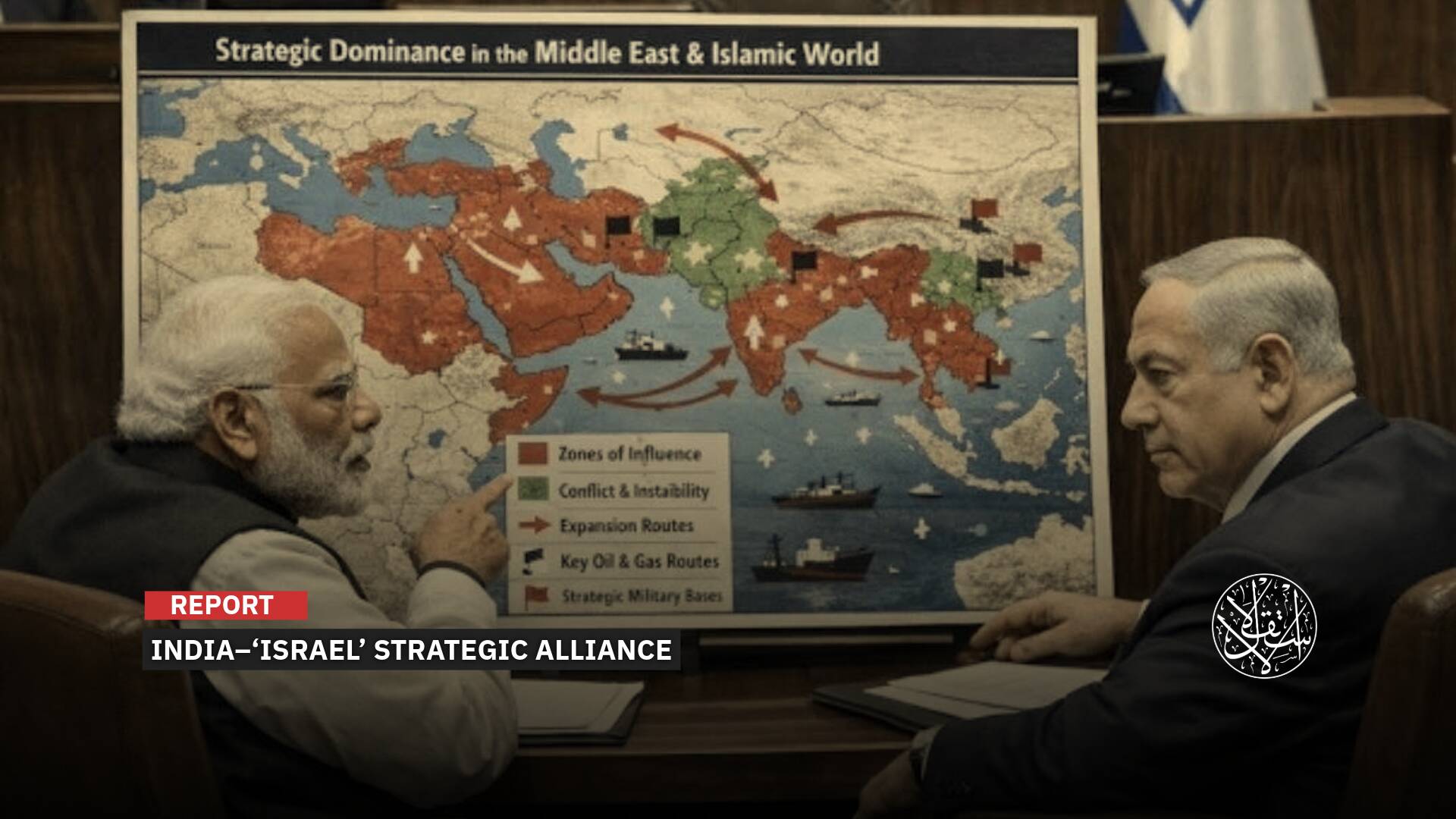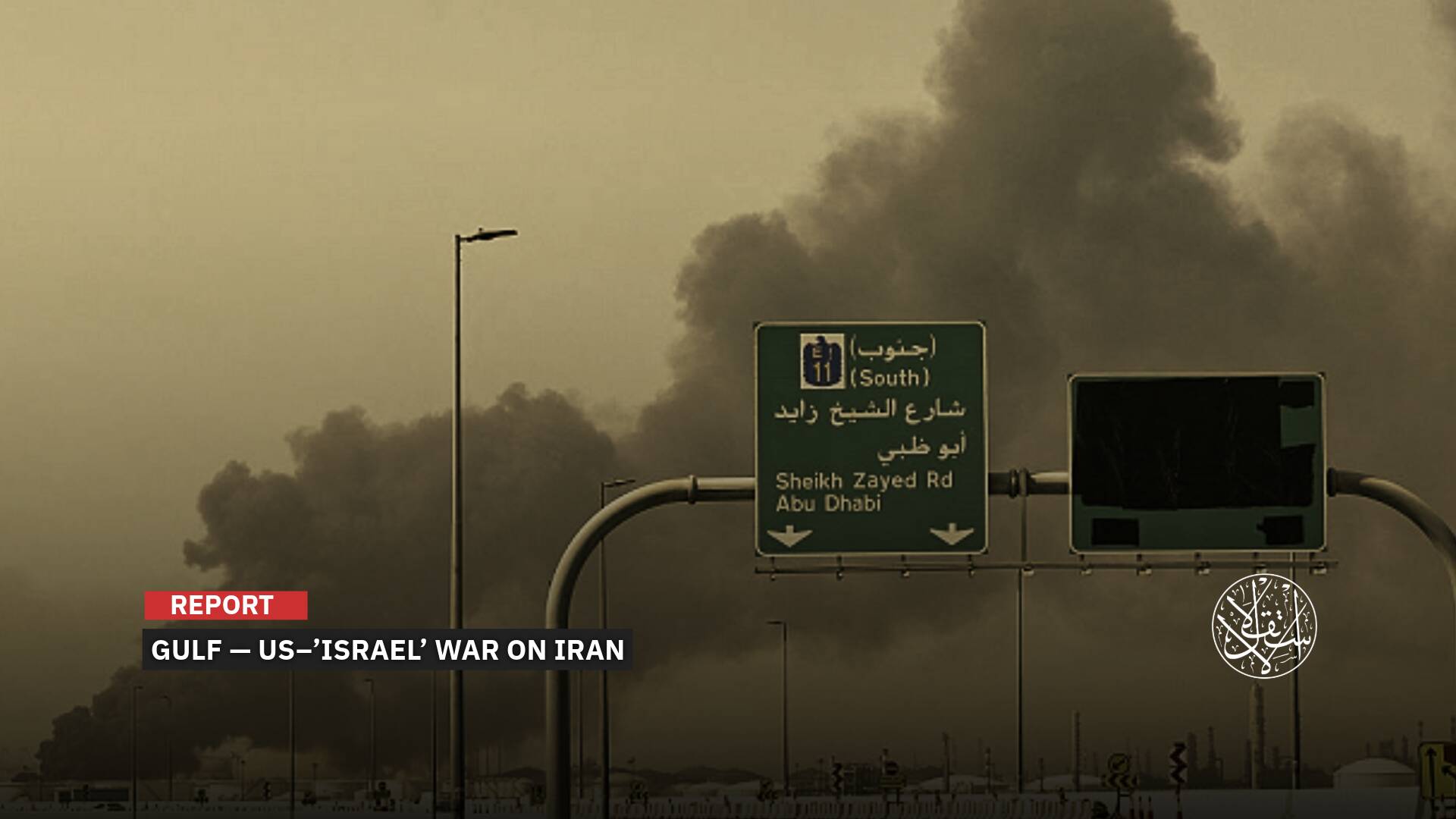The Army is Lurking, So Will the Sudanese Anger Accelerate the Overthrow of Hamdok's Government?
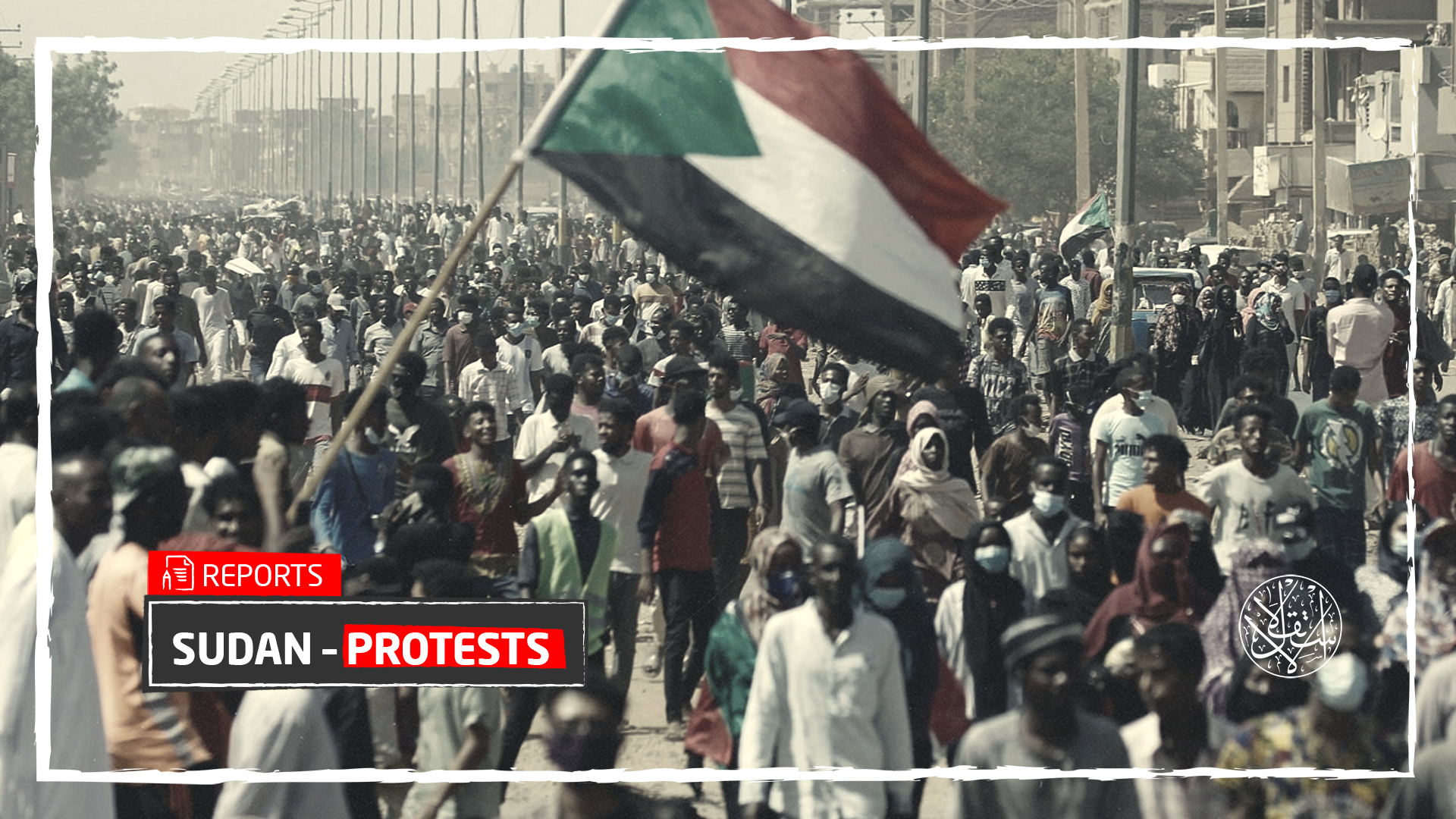
Opposition voices are mounting in Sudan and demanding the overthrow of the government of Abdullah Hamdok, who in turn turned to the political forces that participated in the 2019 revolution against former President Omar al-Bashir's regime, to save him from growing public anger over difficult economic conditions and successive political failures.
Hamdok is trying to defuse an increasingly rising crisis on the ground with warnings from political forces to demonstrate from June 30, 2021, to overthrow the government and restructure the entire political process.
Hamdok and his regime have increased their fears that the military is semi-isolationist within the components of government about interacting with what is going on in the public scene and re-arranging themselves.
This was reflected at the comprehensive meeting of military commands on June 23, 2021, announcing that it was under the command of commander-in-chief (Abdel Fattah al-Burhan), during the meeting, which was attended by all commanders of military units and teams, including the Vice-President of the Transitional Sovereignty Council, Mohammed Hamdan Daqlo (Hemedti), while Hamdok was not invited to meet.
This meeting made the problem complex for the prime minister, making it difficult for the great challenges facing his regime, from the fears of military coups to the fears of a larger and more comprehensive counter-revolution that is ravaging them, as it has hit the Bashir regime before.
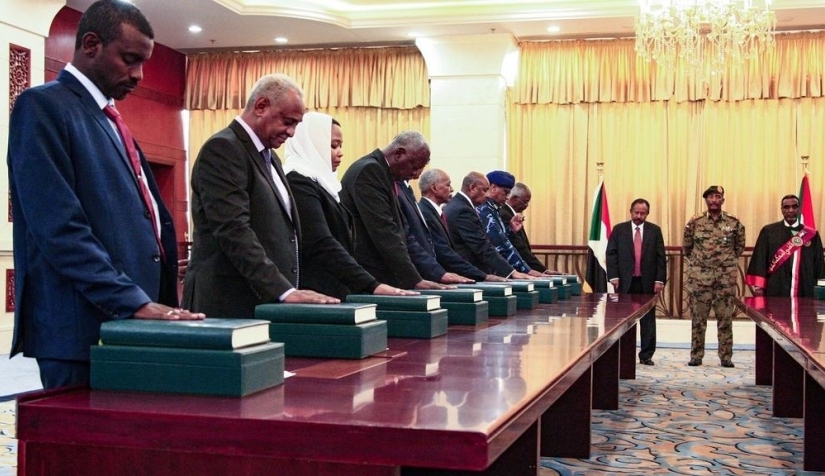
Calls for the Fall
On a daily basis, the capital and various Sudanese cities witness demonstrations called by popular forces, local committees and coordination, raising the slogan "Fall only", referring to the government of "Forces of Freedom and Change" (known as "Qaht") which is leading the transition under Hamdok, as a partner of the ruling military component under the umbrella of the Council of Sovereignty.
Demonstrations on Fridays calling on the government to resign or be dismissed since the decision to lift fuel subsidies came into effect in early June 2021, punctuated by unrest and clashes with security and executive forces affiliated with Hamdok, who tried to arrest some protesters.
Since June 10, 2021, a large-scale campaign to collect signatures from 10 million Sudanese has begun in Khartoum and several states to demand the overthrow of the government.
The signings, called the Sudanese Campaign to Stop the Collapse, were launched calling for the government to leave, amid calls for a 1 million demostration on June 30.
On June 12, 2021, Sudanese politician Mohamed Abdel Kader wrote an article entitled "You failed, Hamdok", describing the scale of the crisis facing Hamdok.
"The failure of the post-change government is no longer controversial or questionable, “Qaht” has completely failed to deal with urgent citizen issues, the political and economic situation has worsened to the extent that life has stopped completely, and rows and crises have become the main feature of Sudanese life," Abdel Kader said.
He added: "A crisis in fuel, gas, electricity, bread, water and everything, record high prices, rows (queues) are increasing day by day, and there does not seem to be light at the end of the tunnel, political tension has reached its extent, and security fragility is tempting to violate our sovereignty, and our country has been distributed among countries, and has become a hotbed of movement of ambitions and intersections of the agenda."
"Some people tried to bury their heads in the sand to deny what was happening in the way of arrogance and settling scores with the Kizan, or out of the political intolerance of the Qaht government, which failed its supporters before it surprised the Sudanese with a lacklustre performance that did not live up to their ambitions and dreams of change," Abdelkader said.
"Frankly, the biggest provocation to the citizen now is that the government continues its current situation as if nothing had happened," he said.
Hamdok's Attempts
Since June 23, 2021, events have escalated and the Voice of the People coordination in Khartoum has called on the transitional government to "leave immediately," declaring that it has lost its legitimacy after its "great failure" in the absence of the state's "prestige" and degradation in all aspects of life, as well as ongoing political confusion.
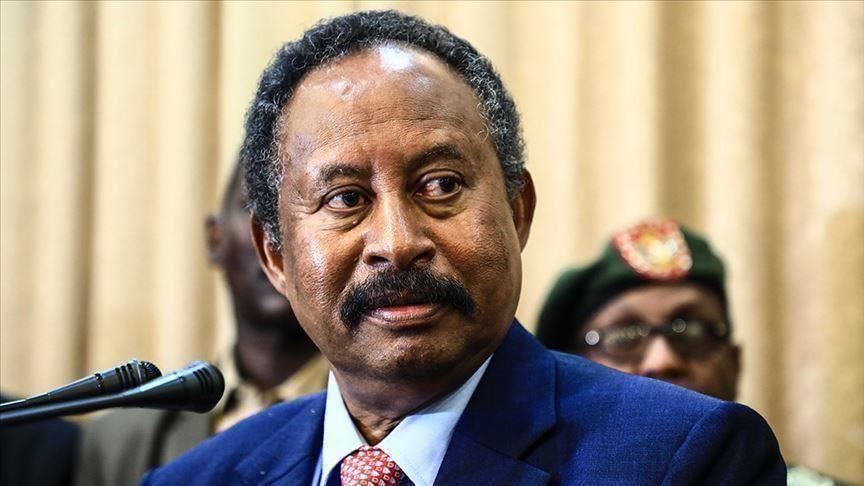
"Either we, or the failed government," said Coordination member Wadad Darwish, while the General Secretariat for Coordination stressed that "escalation and sit-ins in the streets will be peaceful until the government leaves."
Immediately afterwards, Hamdok tried, through proactive action, to absorb anger and overcome the danger, launching on June 22, 2021, an initiative to "fortify the democratic path" that followed the overthrow of the Bashir regime (1989-2019).
At a press conference in Khartoum, Hamdok announced his initiative to meet what he called "major challenges", such as economic decline and insecurity, the lack of justice and differences between the political forces themselves, as well as the slow implementation of the peace agreement with armed movements.
"The country is living a complex reality and is experiencing an all-out national crisis caused by the failure to achieve comprehensive national consensus since the country's independence in 1956," Hamdok said, stressing that "the partnership faces challenges and military fragmentation."
Local media suggested that Hamdok had resorted to the initiative "after fear and despair of the internal power dispute that hinders his movement and ravages the future of his political system".
He also wanted to hold each party accountable, particularly to the military, for security disturbances and tribal conflicts, and for civilians for incomplete power structures, including the transitional parliament and independent commissions provided for in the 2019 constitutional document.
Hamdok and his team's goal was to "not find themselves in the face of the expected scenario, which confronted al-Bashir's regime when he was isolated, and put him in the symbols of his rule in The Cooper Prison in Khartoum," they said.
Military Signals
What increased the vague fate of the Hamdok government was the military component's reaction to the prime minister's speech, which mentioned differences between the army and "rapid support" (the army is followed and led by Hemedti).
On June 23, 2021, the Chairman of the Sovereign Council and the Army Commander, Al-Burhan, together with his deputy and commander of the Rapid Support Forces, Hemedti, held a meeting with senior officers.
During the meeting, Al-Burhan and Hemedti denied any differences between the two forces, while al-Burhan described any other talk as "a kind of spreading rumors and sowing discord among the components of the security system," while Hemedti explained that the army and rapid support are both under the command of the commander-in-chief and "have a historical responsibility to bring the country to safety."
Al-Burhan and Hemedti’s remarks were a clear message of "denial" of Hamdok's statements about the armed forces, where he expressed solidarity with this "message" political parties and forces opposed to the government of "Qahat", most notably the Umma party led by Mubarak al-Fadhil al-Mu'ad, as well as the Baath Party, and considered in two separate statements the prime minister's initiative "a big title for the failure of the government."
"The solutions proposed by Hamdok are inadequate and do not correspond to the size and depth of the political and economic crisis," the Umma party said, calling for the re-establishment of the transitional authority "in accordance with a national alignment that ends the sharp polarization of political power between the components of freedom, change and other political forces."
He also called on the party to "agree on a political and economic charter, specific tasks for the transitional period, hold general elections no later than the end of 2022, and form a new government after the current resignation."
The structure of the regular forces is one of the functions of power in a transitional period that began on August 21, 2019, and lasts for 53 months ending with elections in early 2024, during which the army, civilian forces and armed movements that signed a peace agreement with the government will share power on October 3, 2020.
This phase began following the removal of Omar al-Bashir from the presidency on April 11, 2019, under the weight of popular protests denouncing the deteriorating economic situation, the same situation that continues under the umbrella of the Hamdok government, more than two years later.



